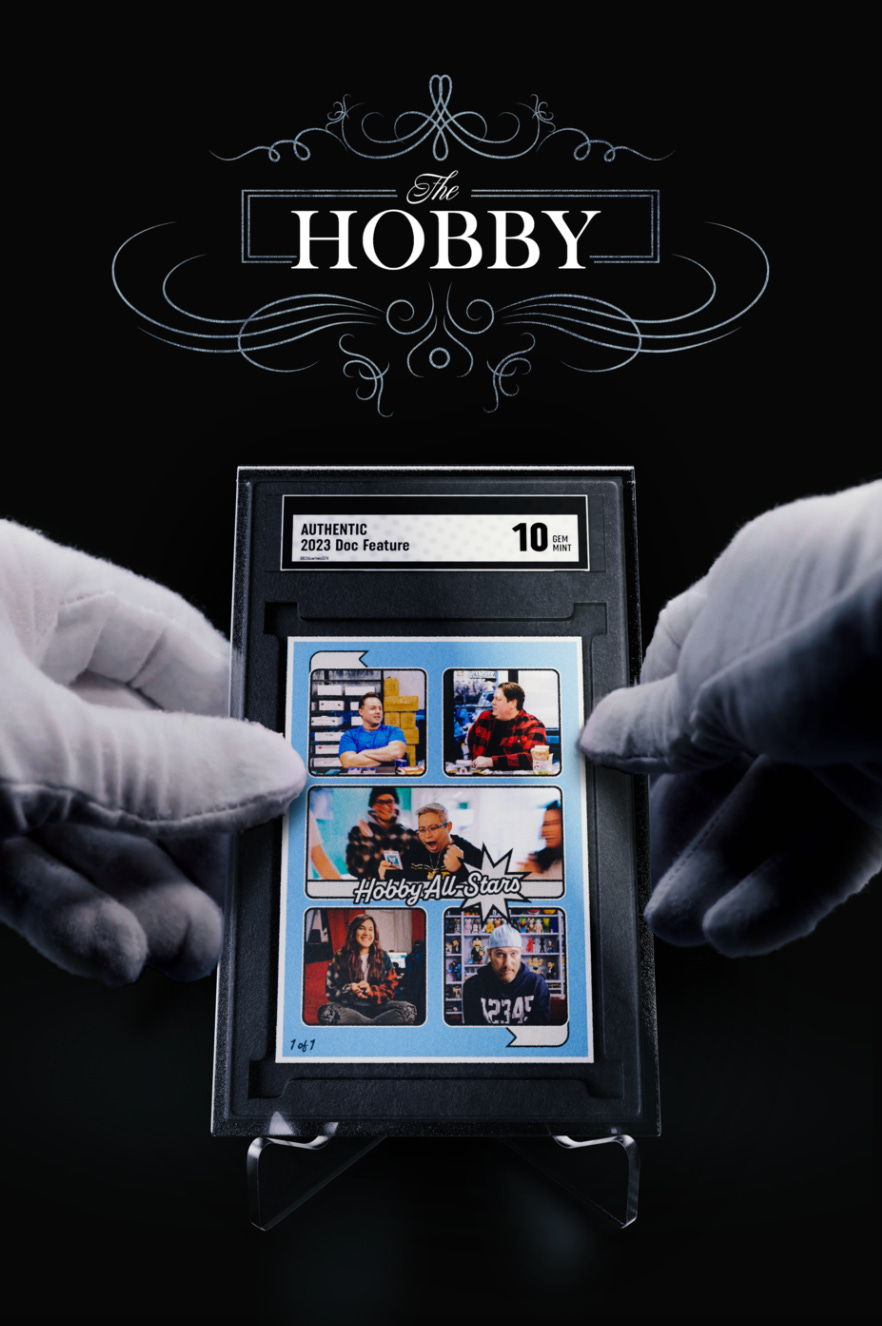Documentary reviews: ‘The Hobby’ and ‘They Called Him Mostly Harmless’
A pair of new nonfiction films about people who go very far with their hobbies
When I was a kid, my love for baseball manifested itself in a love for baseball card collecting. I had just about every Topps set between 1985 and 1992 or so, and have fond memories of biking up to the drugstore to buy 4 or 5 packs at a time.
Back then, my parents used to tell me to hang onto the cards, because they’d be worth something someday, and because my dad’s mother had thrown out his cards, that I shouldn’t make the same mistake. But of course, every other kid in America in the 1980s did the same thing and got the same advice, and most of the cards were so common that none of the cards ended up all that rare. Like so many other things, it was a speculative bubble that ended up busting.
I fell out of the hobby, although every so often, for nostalgia’s sake, I’ll grab a pack of cards if they’re for sale at a convenience store.
The Hobby, a new documentary directed by Morgan Jon Fox and landing on VOD this Friday, tells the story of how a new card-collecting boom kicked off in 2020, in conjunction with the pandemic.
There were a few reasons for this, including the boredom brought on by the lockdowns, a lack of live sports, and the airing of The Last Dance, which spurred interest in Michael Jordan and the 1990s NBA more broadly. Lots of bored people excavated their garages and storage rooms and found things that others might value. The boom also extended beyond sports, to Pokemon cards and even cards featuring celebrities like Kim Kardashian.
The film provides a pretty positive portrayal of the collecting hobby, which introduces us to some interesting characters throughout the card-collecting world. It provides a multifaceted look at what the collecting subculture looks like today.
However, there are some definite red flags, here, that the movie mostly minimizes.
The documentary is notably light on skepticism directed at card obsessives, or at the idea that collecting cards gets in the way of the passion for the sports, or the other underlying things.
The card collecting surge rose at the same time as things like crypto, NFTs, and meme stocks- nontraditional vehicles that a lot of people decided to invest in during a very uncertain time. Sure, the people we see at the top of the card world aren’t nearly as loathsome or scammy, but the film slips in at the end that the value of the cards has indeed slipped from their all-time highs.
There’s also much discussion of the sports apparel giant Fanatics, which has acquired the trading card rights to every major sport, including by the purchase of Topps, and that consolidation has continued in the post-pandemic years. Fanatics is a company that has done similar things with the sports apparel business, and due in part to their notoriously poor craftsmanship, does not enjoy a very good reputation among sports fans.
Still, the film provides a 360-degree view of its subject matter. And it ends with this wonderful song:
They Called Him Mostly Harmless
The Hobby mostly presents the card-collecting hobbyists as well-meaning folks, even if they get a bit over the top at times. Another new documentary, They Called Him Mostly Harmless, does not grant anything close to the same courtesy to the ranks of online true crime sleuths.
They Called Him Mostly Harmless, directed by Patricia E. Gillespie and now streaming on Max, is a film as unwieldy and disjointed as its title. It’s about a fascinating story — previously explored very well by Philadelphia journalist Jason Nark — but a not especially strong documentary.
The story is, that a man was found dead in a tent in Florida, and he left behind nearly no indication about who he was or where he came from. He used the alias “Mostly Harmless” — people in the hiking subculture tend to use such monikers — but no one knew his real name.
A group of Internet sleuths later congregated to try to solve the mystery, and eventually uncovered the man’s identity- and it turned out he had been accused of some very bad acts.
Much of the film is spent with the sleuths- who end up getting into multiple extremely bitter feuds with one another. They were also, like a lot of true crime sleuths, wrong all the time, including naming multiple still-alive people as the deceased.
I didn’t care about any of these people, who seemed genuinely disturbed and hostile, and wish the documentary hadn’t spent nearly as much time with them.
I’m much more interested in the part of the story in which the man was unmasked, and those who cared about this mystery had to reconcile themselves with having spent so much time investigating someone who turned out to be a bad guy. But that’s more of an afterthought here.
I was reminded a bit of I’ll Be Gone in the Dark, the HBO documentary miniseries based on the book of the same name by the late Michelle McNamara, as well as the subsequent solving of the Golden State Killer case that she had given her life to trying to solve. In that, as in the book, I cared a great deal about McNamara’s life story, and not in the slightest about the murder case or the community of sleuths who worked on it.
The Hobby comes on VOD on Friday. They Called Him Mostly Harmless is streaming on Max.




